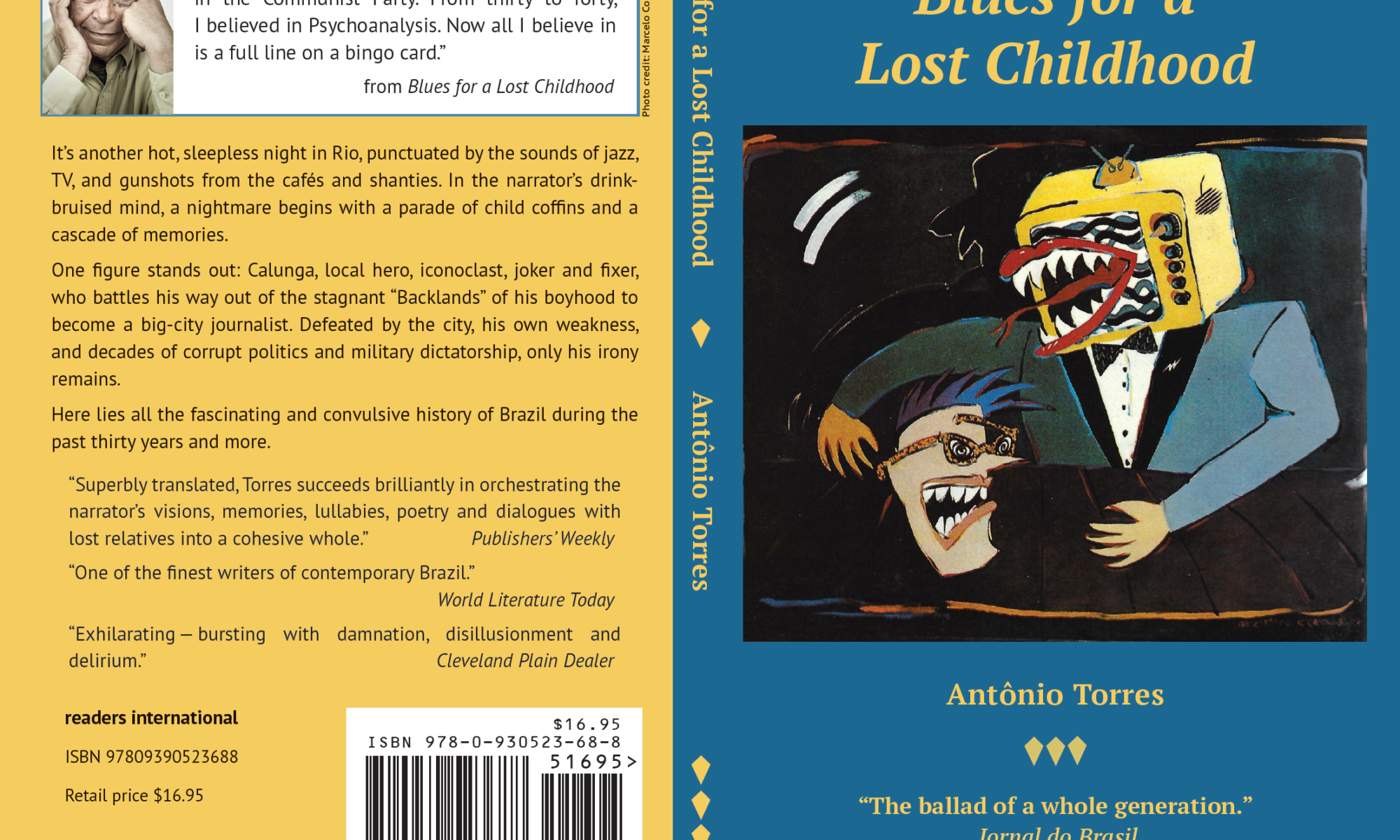“A novel that must be read, an intellectually demanding political, social and literary creation, a novel of psychological depth, remarkable imagery and tragic, absurd beauty. Torres’ novel is a challenge; nonetheless it offers a wonderful opportunity to learn about a people, about a culture that knows so much more about us than we know about them.”
Los Angeles Times
“Torres’ book mixes places and times, so that the narrator alternates between talking to the dead, quarreling with his wife, and dreaming of his mother. The style is musical and moralistic, spattered with tags of songs, proverbs . . . , and reminders that ‘to remember is to live’.
The New Statesman
“The flight to Rio de Janeiro and São Paulo symbolizes an important drama for Brazilians. To abandon drought, poverty, and repressive tradition for the hope that the adopted cities represent is to act a role in a contemporary play whose protagonists are a continuous stream of refugees. The deep cleft that separates the two parts of the country is much harder to cross than anyone imagines . . . Torres’ books, widely read in Brazil, reveal a compelling need to define the relationships between individuals and institutions and to understand the critical metaphorical and actual journeys they make. Brazil is a country of frontiers, its sophisticated modernity juxtaposed with vast wilderness and daunting challenges, a country truly on the cusp.”
Hungry Mind Review
“The topic of craziness was a crucial one in the 1970s, not only because of individual life experiences but also because of the repression and censorship enforced by the military dictatorship, which lead many young intellectuals into political exile or psychiatric treatment. Blues for a Lost Childhood (1986) picks up earlier themes. The protagonist’s hallucination brings up Brazil’s political past, this time from a Spanish-American perspective.”
Dictionary of Brazilian Literature
“By the time we join Calunga and his cousin in Blues for a Lost Childhood, the world has inexorably started turning. The dizziness is that of the military dictatorship and its Economic Miracle, a ‘Nobel Prize afternoon’ of ‘traffic jams, tunnels, overpasses, sirens, barracks, tortured and torturers, and the dog-shit on the sidewalks.’ The childhood language of prayer and ritual, lullabies, romantic poetry memorized at school, rural ballads reciting murder and myth, remains as both a haunting and comforting reminder of another universe, populated too by the precessions of blue ‘angels’—coffins, the tragedy of infant mortality. But it is rapidly submerging beneath a new language, that of journalism and advertising, television and popular song, state propaganda and revolutionary protest, where any perspective of depth and truth has disappeared . . . In the limbo between these two cultures, where there is no longer any centre to hold, and where there is no possible return, then perhaps suicide, alcoholism or madness are understandable options.”
Babel Guide to Fiction from Portugal, Brazil & Africa
in Translation
“Morning StarTorres develops a syncopated, stop-start style, effervescent, raked with satire and insight into ‘the outrageous things that are going on around us’ . . . Remarkable.”
Morning Star

